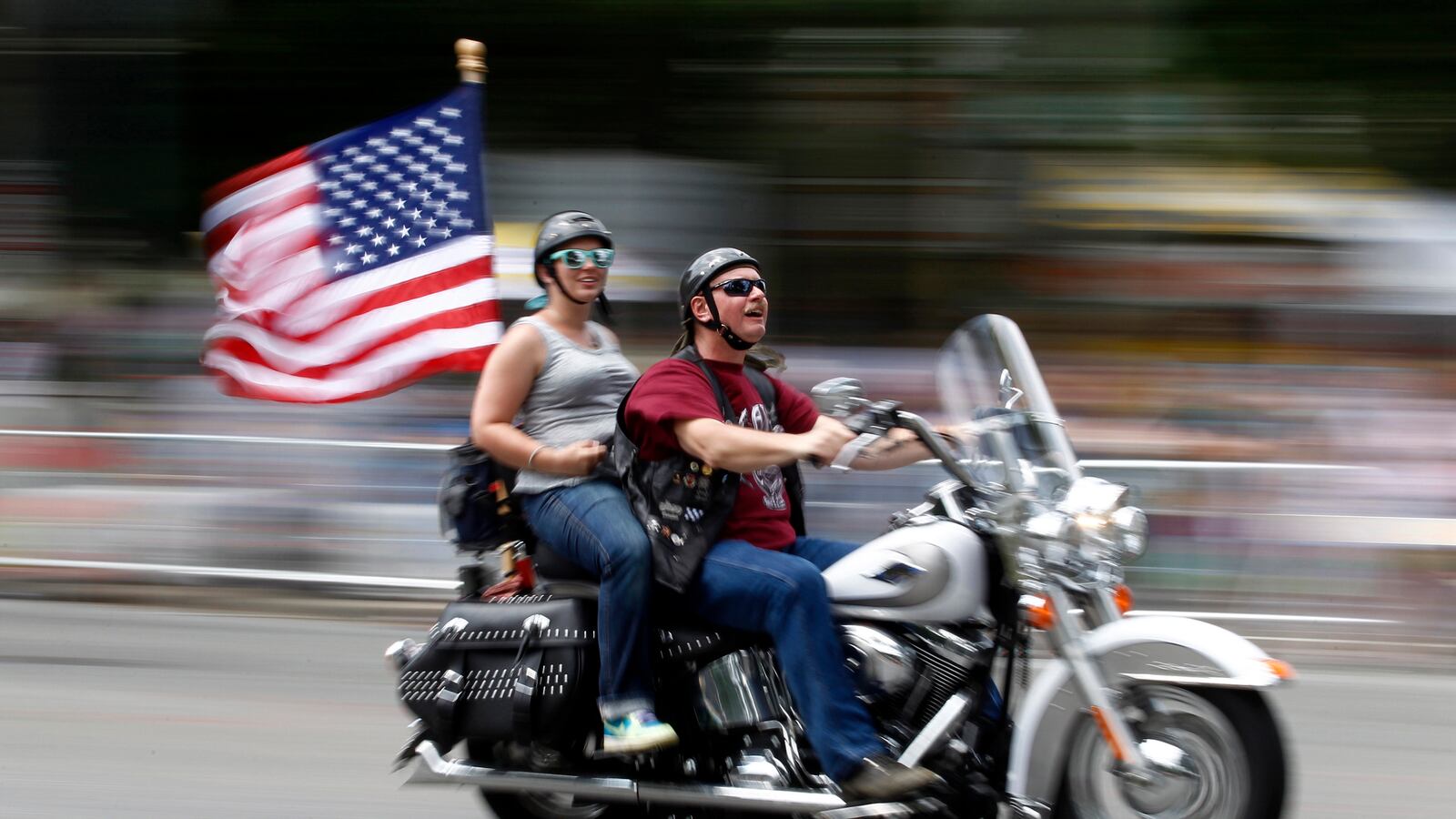Forty years ago, the United States entered the Vietnam War, which would bitterly divide the nation. We would spend years on a bombing campaign that, to this day, cannot be called a success. And, most shameful of all, we would snub our returning combat-weary veterans, almost all of whom were drafted without the power to refuse service, creating a generation of temporarily forgotten patriots.
This weekend the nation’s capital will vibrate under the humming engines of thousands of motorcycles as they ride through Washington for a run named for the bombing mission itself, Rolling Thunder. Riders hail from all over the United States, and the haunting sound of roaring engines becomes an undeniable force in the city, honoring our Vietnam vets, and expanding to include the ever-growing numbers of Iraq and Afghanistan veterans.
Rolling Thunder has become a symbol of American spirit, of our ability to rise above political differences and honor those forgotten soldiers who went to fight knowing they had very little support back home. The noise of the engines drowns out the differences among the riders, and the rest of us, and when they roll through town, they are all part of a larger community, one that has chosen to honor and recognize fellow Americans.
Today this notion of community is in a fragile state, and likely to fray more in the tensions of an upcoming presidential campaign. The message of Washington politics has trickled down onto main streets across the U.S. and threatens the sense of community so uniquely American. It’s time that divisive message stops.
The message is that we are too different, that disparities are the fault of a particular group of people, pitting citizens against citizens, and dividing the nation instead of uniting communities.
This class warfare is a tool; it’s the knife pushed on us by politicians. But it is we who fray the fabric uniting us, destroying our sense of community. The idea of class warfare is a popular political tactic because it’s a convenient way to lay blame elsewhere. How very easy to divide the American public into “us vs. them,” to vilify “the 1 percent,” and to applaud “The Other 98 percent.” But it doesn’t provide a solution to any of our nation’s problems.
As election season ramps up, we will see some candidates go for the easy kill; they will grab onto this message and try to divide the nation based on income inequality, based on wealth and riches and haves and have nots.
After all is said and done, after the lines are drawn and the teams created in the “us vs. them” game, no matter how the game plays out, there are no winners. That’s because there is no game plan. It’s rhetoric. It distracts from the truth. And the truth is, as a united front, the American people are strong indeed, and can, together with their leaders, find real solutions to the national challenges of too little economic growth and too much income inequality.
When Americans visit Arlington National Cemetery this weekend, or the countless other eternal resting places for our fallen soldiers, we will not ask of the name on the stone, “are you too rich to deserve remembrance? Are you too poor? Did your economic status negatively impact me before you left without return?” Instead, in true American fashion, our citizens will honor men and women, young and old, from every socio-economic background, every faith, from all 50 states, and come together as a community, as one nation.
The powerful rumble of Rolling Thunder in D.C this weekend is only achieved through the large community that participates—a reminder to us all that we are greater than the sum of our parts, and that we are louder, and stronger, when we ride together. Class warfare is a dangerous political tool. But because we as a nation are tougher and smarter than that, class warfare usually doesn’t work. While the presidential campaign kicks into high gear, we must remember that our ability to form a community is what makes us a great nation. We must demand more from our politicians, from our candidates, and from ourselves.
It is time to set goals, to get to work solving America’s problems, and rebuild a larger sense of community.
Jon M. Huntsman Jr. is a former governor of Utah and Joe Lieberman is a former U.S. senator from Connecticut. Both serve as national chairmen for No Labels.






